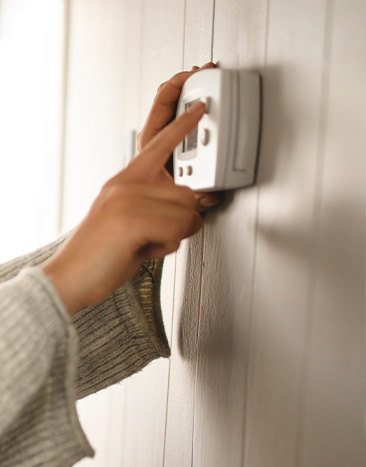
HVAC Service in Wilsonville, OR
Reliable HVAC Service for Year-Round Comfort
At Oregon Heating & Air Conditioning, LLC, we deliver comprehensive HVAC services in Wilsonville, ensuring your comfort all year round. Whether it’s the blazing summer or the chilly winter, our team is dedicated to providing timely, efficient solutions tailored to your needs. Our services include HVAC repairs, maintenance, and installations for both residential and light commercial systems. Trust in our commitment to quality as we ensure your HVAC system runs at its peak efficiency.
Our HVAC maintenance services are particularly crucial, as they help identify potential issues before they become costly repairs or replacements. Routine check-ups not only prolong the life of your equipment but also enhance its efficiency, ensuring that your energy consumption stays low. We offer customized maintenance plans tailored to each client's specific needs, considering factors such as the age of the equipment, usage patterns, and particular challenges posed by Wilsonville's climate. This proactive approach ensures uninterrupted comfort and peace of mind.
Ensure optimal indoor comfort with our professional HVAC contractor in Wilsonville. Contact us at (971) 444-6310 or fill out our online form.

Frequently Asked Questions
How Often Should I Service My HVAC System?
Regular maintenance is crucial for optimal performance and longevity of your HVAC system. It is advisable to have your system serviced at least twice a year, once before summer and once before winter. This ensures that your system operates efficiently when you need it the most. At Oregon Heating & Air Conditioning, LLC, we offer scheduled maintenance plans to keep your system running smoothly and efficiently. Regular servicing can help prevent costly repairs and extend the life of your equipment. During these maintenance visits, our technicians perform comprehensive checks and clean crucial components such as coils, filters, and blowers. This meticulous service can prevent unexpected breakdowns and improve indoor air quality, a critical aspect of maintaining a healthy living environment. Trust our team to perform these essential services with precision, ensuring the longevity and efficiency of your HVAC system.
Can Regular HVAC Service Help Reduce My Energy Bills?
Yes, regular HVAC service is highly effective in reducing your energy bills. Over time, components like air filters, coils, and fans can accumulate dirt and debris, forcing your system to work harder and consume more energy to achieve the desired temperature. During a professional tune-up, technicians clean these vital parts, lubricate moving components, and ensure all settings are properly calibrated. This optimizes the system's efficiency, allowing it to heat and cool your home more effectively with less energy consumption, directly translating to lower monthly utility costs. Some studies even suggest that consistent maintenance can lead to energy savings of 5% to 15%.
What Can I Do Myself to Maintain My HVAC Unit Between Professional Visits?
Between professional HVAC visits, there are several simple yet impactful DIY tasks you can perform to help keep your system running smoothly and efficiently. The most crucial is regularly checking and replacing or cleaning your air filter, typically every 1 to 3 months, or more frequently if you have pets, allergies, or live in a dusty area. Ensure that your outdoor condenser unit is free from obstructions like leaves, grass clippings, and debris, and gently rinse the coils with a garden hose to remove surface dirt. Inside your home, make sure all return and supply vents are unobstructed by furniture, rugs, or drapes to allow for optimal airflow. Additionally, keep the area around your indoor furnace or air handler clear of clutter and routinely check the condensate drain line for any blockages that could cause water leaks.
How Do I Know If I Need a Repair or a Full HVAC System Replacement?
Deciding whether to repair or replace your HVAC system involves weighing its age, the frequency and cost of repairs, and its current energy efficiency. A general guideline is the "$5,000 rule": if the cost of the repair multiplied by the age of the unit exceeds $5,000, replacement might be more cost-effective. If your system is old (approaching or exceeding 15-20 years for a furnace, 10-15 years for an AC), frequently breaking down, or struggling to maintain comfortable temperatures despite repairs, replacement is often the wiser long-term investment. Conversely, if the unit is relatively new and the repair is minor, fixing it usually makes more sense. Safety concerns, such as a cracked heat exchanger leaking carbon monoxide, are also a definitive reason for immediate replacement. A professional technician can provide a thorough assessment to help you make an informed decision.
What Should I Consider When Getting an HVAC System?
When getting a new HVAC system for your home, several crucial factors should be considered to ensure optimal comfort, energy efficiency, and long-term value. First and foremost is proper sizing, which involves more than just square footage; a professional HVAC contractor should perform a Manual J load calculation that accounts for your home's insulation levels, window types and orientation, ceiling height, number of occupants, and local climate. This prevents an oversized system from "short cycling" (wasting energy and wearing out faster) or an undersized one from constantly running and failing to maintain comfort. Secondly, consider energy efficiency ratings, such as SEER (Seasonal Energy Efficiency Ratio) for cooling and AFUE (Annual Fuel Utilization Efficiency) for heating, as higher ratings lead to significant long-term savings on utility bills. Research available rebates and incentives at the federal, state, and local levels (e.g., utility companies often offer rebates for high-efficiency systems, and federal tax credits may be available under programs like the Inflation Reduction Act), as these can significantly offset the upfront cost. Finally, evaluate the type of system (central air, heat pump, ductless mini-split), your budget, the quality and condition of your existing ductwork, and the reputation and certifications of the HVAC contractor to ensure a professional installation and reliable ongoing support.
What Are the Benefits of Energy-Efficient HVAC Systems?
Energy-efficient HVAC solutions offer numerous benefits, including reduced energy consumption and lower utility bills. These systems are designed to utilize less energy while maintaining optimal performance, ultimately saving you money. Moreover, energy-efficient systems are better for the environment, as they reduce your carbon footprint. At Oregon Heating & Air Conditioning, LLC, we provide energy-efficient solutions tailored to your specific needs, ensuring that you enjoy the benefits of reduced energy costs while contributing to environmental sustainability.
Work with your local team of experts!
-
Quality Materials & Craftsmanship
-
Over 20 Years of Experience
-
Punctual & Responsive
-
Customer Care Focused
Oregon Heating & Air Conditioning, LLC's Blog
- How to Maintain Your HVAC System in Winter
- The Importance of Timely Furnace Repair

